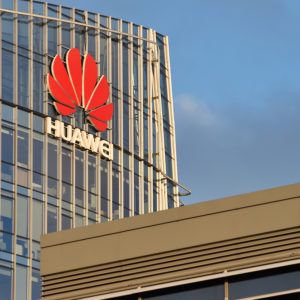As warnings from tech experts, lawmakers and regulators grow louder over perceived national security threats posed by Chinese telecom company Huawei, smaller, rural telecom carriers worry about the cost of ripping out and replacing Huawei equipment and worry Congress won’t do enough to help.
Almost immediately after President Trump signed an executive order prohibiting U.S. telecom companies from doing business with foreign companies “where the transaction involves any property in which any foreign country or a national thereof has any interest” last week, the Commerce Department placed Huawei and its 70 subsidiaries on a trade blacklist, effectively prohibiting telecom companies from doing business with them.
The Commerce Department also issued a 90-day license for companies doing business with Huawei to continue business and take time to reorder their supply chains.
After the license expires, there will be a “domino effect,” said Carri Bennet, legal counsel for the Rural Wireless Association.
“Once that [Commerce Department] license expires, then we run into problems about ordering spare parts, getting the network expanded, software upgrades,” she told InsideSources. “The executive order impacts not just small rural [telecom] carriers, but all kinds of businesses like companies producing things in China, cloud computing, data retrieval, broadband internet access and telecom services.”
Then there’s the National Defense Authorization Act of 2019, which prohibits the federal government from doing business with Huawei and ZTE — according to Bennet, the reauthorization “extended to any kinds of loans or grants that go to companies that do business with Huawei or ZTE. It was intended to also reach the Universal Service Fund (USF). My members are using the USF to support their networks.”
In other words, many smaller, rural carriers using Huawei equipment now don’t have funding to continue broadband investment to close the digital divide and eventually deploy 5G.
(The Big Four, which are AT&T, Sprint, T-Mobile and Verizon, do not use Huawei equipment.)
Some of the affected carriers met with senators Mark Warner (D-Va.) and Marco Rubio (R-Fla.) last week to explain how the Huawei ban could devastate small businesses, 5G expansion and deployment efforts, and cripple Americans’ ability to get broadband access.
Then, a bipartisan group of senators including Tom Cotton (R-Ark.), Roger Wicker (R-Miss.), Ed Markey (D-N.J.) and Warner produced a bill to establish a Supply Chain Security Trust Fund of $700 million to help small carriers rip out and replace Huawei equipment.
“5G networks need to be robust and secure, and not rely on equipment or services that pose a national security risk,” Wicker said upon the bill’s announcement. “This legislation would ensure continued American leadership in advanced wireless technology deployment. It offers relief to those providers that need to replace foreign equipment within their networks while augmenting the availability of secure 5G networks for all Americans.”
But Bennet said $700 million is not nearly enough.
“Is $700 million enough? No, it’s not, I don’t know where they came up with $700 million,” she said. “If there was anything bad in their networks, they would be the first to want to rip it out and replace it. They’re patriots, they’re upstanding citizens, and now they’re in this state of flux. They don’t know what they should be doing and they’re not getting any good guidance from the government on this. They’re just like, ‘What do we do, what do we do?’ They’re inundated with the press and they’re trying to get back to work and saying, ‘I have a business to run.’ These communities are really upset.”
At a 5G event hosted by the American Enterprise Institute on Wednesday, tech experts and an ambassador from the State Department discussed how U.S. companies have been asleep at the wheel when it comes to telecom supply chain cybersecurity, and defended the federal government’s push to ban Huawei completely.
“A year ago I think people would have said, ‘Yes cybersecurity is important to 5G, but wouldn’t have realized there’s a supply chain aspect to 5G,'” said Deputy Assistant Secretary for Cyber and International Communications Policy at the US State Department, Robert Strayer, at the event. “There’s no way to have any untrustworthy components in the network without having a serious vulnerability inserted into that network. It’s really important government talks to telecom operators so they fully understand what’s at stake here. It’s really a decision for the government to make about the national security of their citizens.”
But such fast moves from the feds could give small telecom companies and industries relying on the internet of things (IoT) — like the agricultural industry — whiplash.
“We have farmers who have purchased tractors that cost tens of thousands of dollars that they’re trying to pay down on that may not be able to operate because they’re connected to the internet [because of a ripple effect from the Huawei ban],” Bennet told InsideSources. “They use IoT for when they plant the seeds, how they plant the seeds, getting the crops in, getting them planted, all that stuff. Some are also using it for monitoring livestock.”
Huawei filed a legal motion in U.S. federal court Wednesday morning protesting the U.S. contracting ban, calling it unconstitutional and an abuse of legislative power against a company without a fair hearing or trial.

